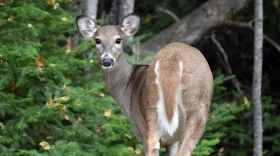Growing up in the grasslands, I have always admired turtles. They are tough and beautiful, like the ornate box turtle, state reptile of Kansas. I met many turtles, from painted beauties to scary snapping turtles, when I went fishing. My grandfather Frank Bruner, of Lenape and Munsee heritage, both Delaware bands, reminded me of a turtle because Delawares associate themselves with turtles. Also, he was a tough survivor of the plains. This excerpt from my memoir The Turtle’s Beating Heart: One Family’s Story of Lenape Survival (Bison Books-University of Nebraska Press) celebrates turtles:
My grandfather probably never knew his Delaware traditions from the Atlantic Seaboard. Delaware elders tell me that most oral tradition of that time is gone. Colonial documents preserve suggestions of the Delaware past, from a European settler point of view. Historic silence has been the fate of the overwhelmed Delaware peoples, so most of our history is absent from the national narrative. A few borrow words from Algonquian languages survive: moccasin, powwow, persimmon, and terrapin.
Many of today’s Delawares are Turtle band. The land turtle group went south to Oklahoma, an elder told me, and the water turtle group went north to the woodlands, a land of lakes and rivers. In both places Delawares thrive.
Turtles are hard to kill. Their hearts keep beating long after separation from their bodies. I met an Arikara woman whose grandmother once gave her a beating heart to swallow, along with broth. This was an old ceremony for a woman’s coming of age. The woman never forgot the lesson of Turtle’s strength, as she felt the sensation of the moving heart in her mouth, throat, stomach, and gut. She still enjoys a long life.
Turtles survive because of their strong hearts and also because they can adapt to many environments. English has three categories for turtles: tortoise, a sea dweller; land turtle; and terrapin, for freshwater turtles. Delaware language points to yet more niches for Turtles. Bands within the Turtle Clan are “Bark Country,” “Beggar,” “Brave,” and “Snapping.” The words suggest rich narratives of geographies, behaviors, and turtle species like the snapping turtle.
Anyone who fishes muddy inland rivers has stories of great snapping turtles that clamp bait and cannot be removed. I have met people who have lost fingertips.
In my early teens I enjoyed the solitude of fishing in a small lake formed from an oxbow of the Neosho River. This was one of the gifts of a Flint Hills upbringing. I spent hours wandering the lake, marveling at sunfish colors, dragonflies, and placid painted turtles. I caught stringers of pan fish and cleaned them for my mother.
One day I tossed in my line beyond the range of snags and watched the bobber tip in the current. Suddenly, an underwater fury attacked the worm. I pulled hard against an unseen surge of power. Finally, I could see the prehistoric beast’s razor-sharp talons and beak. I did not know this kind of animal existed, but I knew I was outmatched. I cut the line.
I remember that first snapping turtle as though it were still next to me and its ferocity. I remember my Delaware grandfather’s power. Turtles can be both dormant and active, like memory itself. When turtles burrow into mud in the winter, they wait but do not die. They have their seasons and migrations.
Denise Low, Kansas Poet Laureate 2007-09, is author of over twenty-five books of poetry and prose. Forward Reviews writes of her new memoir The Turtle’s Beating Heart: One Family’s Story of Lenape Survival: “An accomplished poet, Low’s well-honed prose flows with lyric intensity.” She teaches professional workshops and classes for Baker University’s School of Professional and Graduate Studies. She has won three Kansas Notable Book Awards and has recognition from Seaton Prize, Pami Jurassi Bush Award of the Academy of American Poets, Roberts Prize, and the Lichtor Poetry Prize. Low has an MFA (Wichita State U.) and Ph.D. (Kansas U.).







